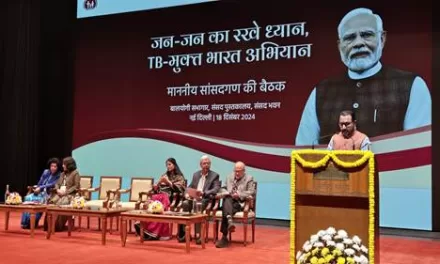In a significant call to action, medical experts have underscored the urgent need for screening newborns for inborn errors of metabolism (IEM) and the training of healthcare professionals in recognizing these critical conditions. During a recent conference hosted by the Indian Society for Inborn Errors of Metabolism (ISIEM), leading specialists gathered to discuss the latest advancements in the diagnosis, treatment, and awareness of genetic metabolic disorders.
Dr. Sunita Bijarnia, Secretary of ISIEM, emphasized the importance of early detection, stating, “Newborn screening should be a key public health initiative. Identifying these disorders early can lead to timely interventions that greatly improve the outcomes for affected children.”
The three-day conference aimed to deepen understanding among medical professionals about the complexities of IEM and the benefits of newborn screening. Dr. Bijarnia highlighted the availability of treatments and the necessity for public awareness, urging healthcare providers to incorporate screening into routine practices.
Lt. Col. Dr. Aradhana Dwivedi, a Medical Geneticist at Army Hospital, pointed out that India’s large population and high birth rate contribute to a greater prevalence of genetic and rare diseases. “As healthcare providers, it is our responsibility to ensure that every newborn is screened for these potentially life-threatening conditions,” she stated.
The conference also delved into the promising area of drug repurposing, where existing medications are evaluated for new therapeutic applications. Dr. Priyanshu Mathur, organizing secretary of the event, highlighted the potential of affordable treatments to enhance the quality of life for children affected by IEM, remarking, “By repurposing drugs, we can provide cost-effective solutions that are accessible to a broader population.”
As the discussion unfolded, experts reiterated the pressing need for continued education and training for doctors to improve recognition, diagnosis, and treatment of IEM. This collaborative effort aims not only to increase awareness but also to foster an environment where early diagnosis becomes the norm rather than the exception.
The call for enhanced newborn screening practices echoes the growing recognition of the critical role that early detection plays in managing rare metabolic disorders, ultimately paving the way for better health outcomes for the youngest members of society.












